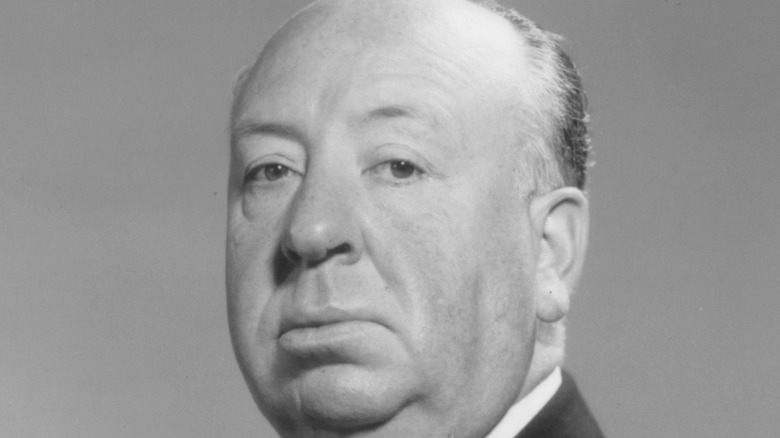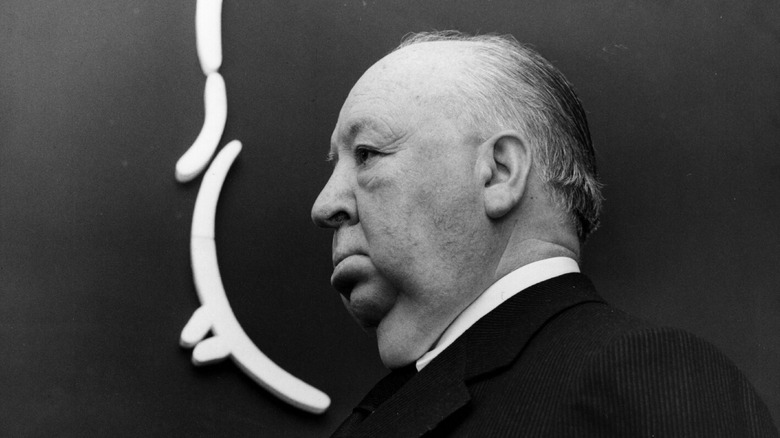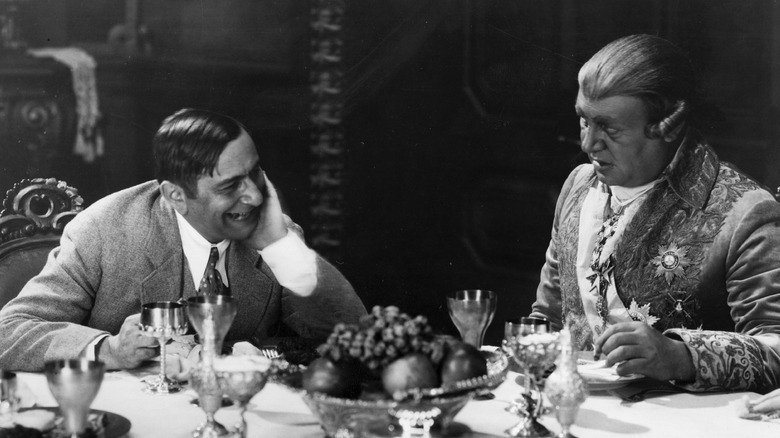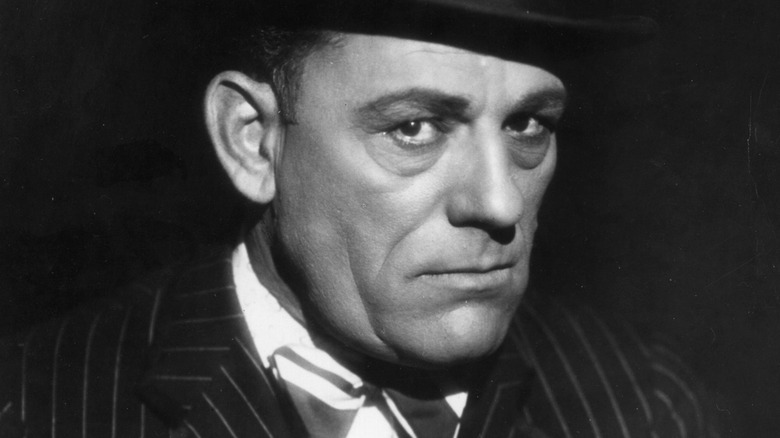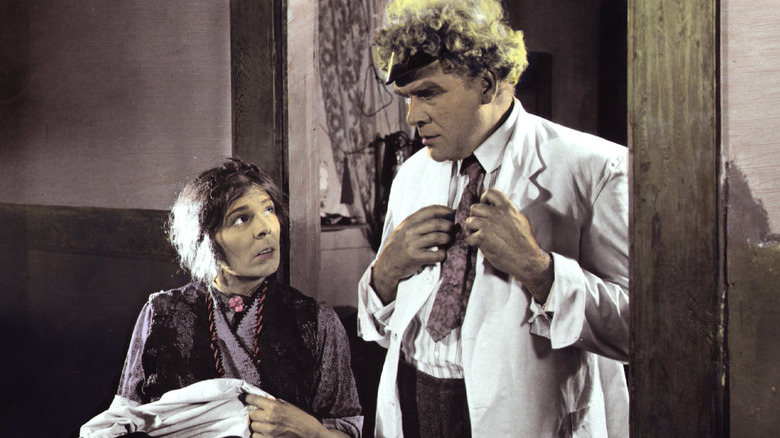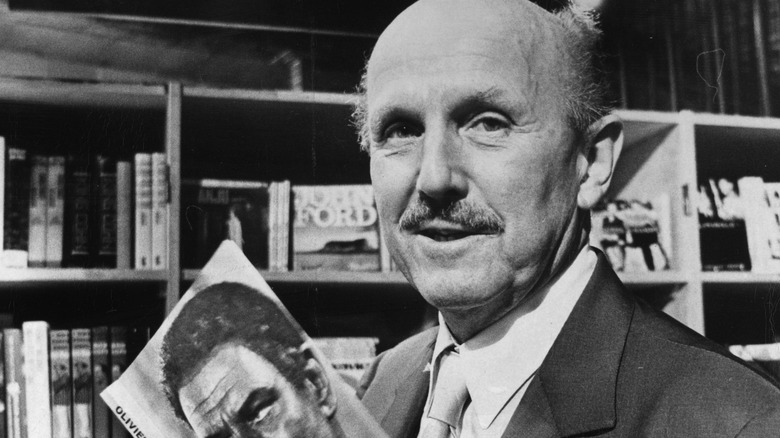Famous Movies That Are Lost To History
Four out of every five movies from the first three decades of filmmaking are lost films, according to Mental Floss, with no complete copy surviving to present day. Occasionally, a movie thought to be lost is discovered and restored, among them are classics such as "Metropolis," "The Passion of Joan of Arc," and "Wings," the first movie to win the Academy Award for Best Picture (via Listverse).
Others are simply missing — even famous ones, or movies by famous directors such as Alfred Hitchcock, Erich von Stroheim, Michael Powell, and Tod Browning. Even with the work of archival organizations like the British Film Institute, the Library of Congress, and Martin Scorsese's Film Foundation, many of these films will never be found. "About 80% of all the silent films are gone, they just don't exist," said Bryony Dixon, a curator of silent films at the British Film Institute, as quoted by the BBC. "They were melted down, burnt, recycled for their silver content — so it's very rare that you find an intact feature film."
If you have an old film canister lying around, you might want to check that one of these lost masterpieces isn't jangling around inside.
Hitchcock's second feature film: The Mountain Eagle
Alfred Hitchcock himself said his 1927 sophomore film "The Mountain Eagle" was "awful," and he was glad it was lost, but a contemporary critic said the melodrama was better than Hitchcock's first movie, "The Lodger," according to the BBC. So who was right? Contemporary observers won't know unless a copy of the movie is discovered. Apparently the story of a school teacher in a mountain village, according to the British Film Institute, the movie stars silent film vamp Nita Naldi.
The movie was originally withheld by the studio (along with his other early film, "The Pleasure Garden") until "The Lodger" began attracting good press about the promising young filmmaker in trade publications, according to The Hitchcock Zone. At this point, "The Mountain Eagle" likely had a small release, with a limited number of copies — none of which were apparently preserved.
Considering Hitchcock's status as one of the most important filmmakers ever, this movie sits at No. 1 on the BFI's "Most Wanted" list of important lost films.
An early Oscar winner: The Patriot
No, not the Mel Gibson movie. This 1928 movie about the Tsar Paul I of Russia was considered for five Oscars, including best picture, best actor, and best writing, an award which it won (via the Academy Awards database). Though nominations were not "official" in those days — the academy's nominations from this period have only been made public through in-house records — "The Patriot" was considered the last silent picture to be nominated for best picture until 2012's winner "The Artist."
The film, starring Emil Jannings as the tsar, was directed by Ernst Lubitsch, who would later direct talkie classics like "To Be or Not to Be," "The Shop Around the Corner," "Heaven Can Wait," and "Ninotchka" (per IMDb). By 1947, Lubitsch would be so respected in the industry that he was given an honorary Oscar "for his distinguished contributions to the art of the motion picture," one of the first directors to receive such an award, according to Gold Derby. Yet, per the BBC, only small fragments of his Oscar-winning film remain.
London After Midnight: An legendary Lon Chaney thriller
Called "The Man of a Thousand Faces" for his versatility as an actor and make-up artist (he did his own macabre looks, per Mental Floss), Lon Chaney Sr. appeared in over 155 movies, including some early monster films for Universal, according to charming web 1.0 website The Lon Chaney Home Page. Of those movies, only 32 exist in complete form today. Missing is his first film, "Poor Jake's Demise"; his star-making turn in "The Miracle Man"; and "Thunder," his last silent film.
But no Chaney film is more lusted after by film historians than "London After Midnight," directed by Chaney's frequent collaborator Tod Browning, who also helmed Bela Lugosi in "Dracula." The movie, which stars Chaney in a dual role as a vampire and the detective pursuing him, is widely seen as the "holy grail" of lost films and was a major commercial hit in its day (per Strasburg Film). Alas, the last known copy of the fearsome film was destroyed in a fire (along with countless other early movies) on the MGM studio backlot in 1965.
The film does live on in one respect, however. Production stills from the movie have survived, and the design of Chaney's vampire — top hat, pale skin, spiky wide-mouthed grin — lives on, as homage, in Jennifer Kent's "The Babadook" (via Rotten Tomatoes).
The original auteur cut of Greed
Some "lost" films do survive, but in an adulterated form, with a happy ending or disorienting cuts slapped on. But no director's cut has a more legitimate claim to being a lost film in its own right than Erich von Stroheim's "Greed." When the early auteur finalized his cut of the 1924 film, an adaptation of Frank Norris's novel "McTeague," it came in at nine hours, according to the BBC. The version that was released was just over two hours, and von Stroheim disowned the final cut (and got in a fistfight with Louis B. Mayer over it).
The version of "Greed" that was released by the studio is considered a masterpiece in its own right, according to Roger Ebert. And it's apparently unclear if longer actually means better here — a critic at the time wrote of the longer film that the director "worships realism like an abstract ideal; worships it more, and suffers more in its achievement, than other men do for wealth or fame." But the missing seven hours — the filmstrips were destroyed to reclaim their valuable silver nitrate — remain a prized lost treasure.
Much of Michael Powell's early career
The director Michael Powell — whose later masterpieces included "The Red Shoes," "A Matter of Life and Death," and "The Life and Death of Colonel Blimp" — was a huge influence on directors like Martin Scorsese and Francis Ford Coppola. But many of his early films are lost, and several are on the British Film Institute's "Most Wanted" list, including his first movie, "Two Crowded Hours," a "very good little murder drama"; "The Price of a Song," another thriller set in the world of song publishing; and "The Man Behind the Mask," his last "quota quickie," that is, a short British movie cheaply made by American studios to meet U.K. theater quotas.
According to ScreenOnline, of the 23 movies Powell directed between the years of 1931 and 1936, nearly half are lost. Of these, "Two Crowded Hours" is the greatest prize, found near the top of BFI's Most Wanted.
